Employment Law
Can I Be Fired While on FMLA Approved Leave?
The Family Medical Leave Act (FMLA) extends a variety of protections and rights to many employees, salaried or hourly. It can grant a total of 12 months of unpaid leave after an employee or a close family member suffers a serious health condition or injury, or to care for a newborn. The concept behind the…
Read MoreCan an Employer Deduct Pay from a Salaried Employee?
An employee paid an hourly rate must be paid for every minute worked and at their hourly rate; there are very few exceptions to this employment law requirement. But what about employees that are paid a predetermined salaried amount each week or each month? Is it permissible for employers to dock their pay for one…
Read MoreKnowing Your Workplace Rights If You’re Pregnant
In 1978, Congress passed the Pregnancy Discrimination Act, which made it illegal for employers to discriminate against an employee if she became pregnant. This means that employees cannot use terminations, wage or hour cuts, medical leave denials, and more to penalize a woman just because of her pregnancy. And yet, in 2013, more than 5,000…
Read MoreCommon FLSA Workplace Violations
The Fair Labor Standards Act (FLSA) provides the majority of workers certain protections such as the right to make at least minimum wage and to earn overtime pay, typically at a rate of one and one half times a worker’s standard rate of pay for hours worked in excess of 40 in a week. However,…
Read MoreAppellate Court Decision May Lead to Discriminatory Hiring Practices
A recent decision by the U.S. Court of Appeals for the Eleventh Circuit concerning federal age discrimination law is drawing sharp criticism. In Villarreal v. R.J. Reynolds Tobacco Co., a Georgia man sued R.J. Reynolds and two job search companies alleging unlawful age discrimination based on the tobacco company’s hiring policy which gave preference to…
Read MorePoll Finds Nearly One-half of Young African American Workers Face Job Discrimination
A recent poll has found that nearly one-half of young black people in America face job discrimination, whether during their job search or while on the job. The poll also found that about one-third of women of all races believe that they have faced gender discrimination. The GenForward race discrimination poll determined that 48% of African…
Read MoreEmployee or Independent Contractor?
A recently filed lawsuit against Amazon, Inc. has highlighted an issue that is a growing concern for workers across America – employment misclassification. Pursuant to the Fair Labor Standards Act (FLSA), whether you are classified as an employee or independent contractor can have a significant impact on both the benefits you are entitled to and…
Read MoreCan I Get Fired for What I Say on Social Media?
While having your parents on social media following your accounts might be widely considered as embarrassing, having your employer or boss do the same can be far worse. Everything you say on Facebook, Twitter, and other popular websites and applications can come back to bite you, especially if it directly insults your workplace or is…
Read MoreI Need More than 12 Weeks of FMLA Leave! What Do I Do?
Employers in every state are required under the federal Family and Medical Leave Act (FMLA) to provide their employees the opportunity to take unpaid leave for medical, military, and maternity/paternity reasons. Employees who take this time are entitled to have their positions reinstated upon their return. How Many Weeks of FMLA Can You Take? Employees…
Read MoreHow to Prove Workplace Discrimination
In the United States, employers are prohibited from discriminating against employees based on protected characteristics such as race, gender, national origin, age, veteran status, disability, or religion. When a person believes that they have been discriminated against, they can file a Charge of Discrimination with the Equal Employment Opportunity Commission (EEOC) and may be entitled…
Read More